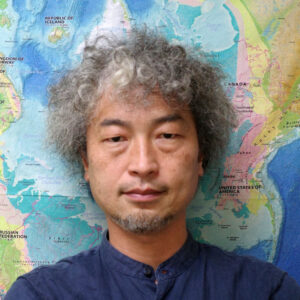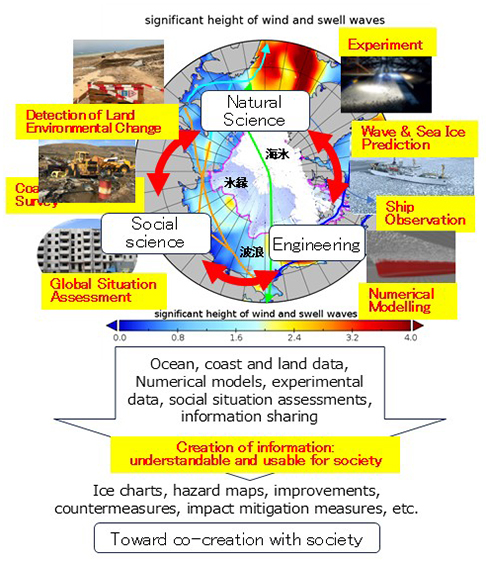Strategic Objective 2
Fostering Arctic societies' adaptation to Arctic environmental change

Strategic Objective Coordinator: Yoshihiro Iijima (Tokyo Metropolitan University)
The Arctic region is currently undergoing unprecedented rapid environmental changes. In this era of transformation, Japanese Arctic research community aims to leverage its long-standing interdisciplinary knowledge to contribute to solving the widespread societal challenges emerging in the Arctic. Environmental changes, such as the decline in Arctic sea ice, glaciers, and ice sheets, and the thawing of permafrost, are opening up new possibilities for using Arctic shipping routes, while they also pose serious security concerns for coastal infrastructure and the indigenous communities living there.
To address these complex and multifaceted issues, this strategic objective emphasizes the flexible integration of diverse knowledge from fields such as natural sciences, social sciences, and engineering. Our aim is to not only achieve academic breakthroughs but also to create practical, actionable information that society can truly understand and utilize. To achieve this strategic objective, we will focus on three practical research themes, closely collaborating across the “Ocean,” “Coast,” and “Land” regions:
- Ocean: We will contribute to the preservation and sustainable use of the Arctic Ocean, such as Arctic shipping routes and coastal areas. We will advance monitoring and prediction technologies for rapidly changing ice-covered seas and develop environmentally friendly next-generation icebreakers.
- Coast: We will thoroughly investigate the effects of environmental changes on marine ecosystems and coastal communities, exploring diverse approaches to sustainable social systems that protect and nurture Arctic livelihoods.
- Land: We will broadly visualize the impacts of permafrost thawing and land environment transformations on social infrastructure, providing practical geographic information that supports concrete adaptation measures and enhances resilience to environmental change.
Achieving these interdisciplinary strategic objectives naturally requires integrating the deepened natural scientific knowledge aimed for in Strategic Objective 1 and the enhanced social scientific understanding of the Arctic region sought in Strategic Objective 3. Through a comprehensive approach that promotes close collaboration among ArCS III research themes, we will maximize the power of Japanese Arctic research and contribute to building a sustainable future on a global scale.

Overall concept chart for strategic goal 2: Structure for interdisciplinary collaboration in response to environmental changes in the ocean (sea ice), coastal and land areas
